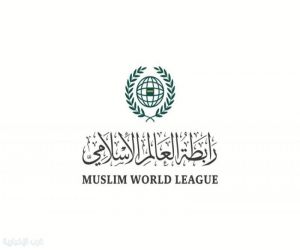EU Climate Pact Ambassador:


المصدر -
Ambassador Mostafa Sherbiny, EU Climate Pact Ambassador and Chair of the Scientific Chair for Sustainability and Carbon Footprint, stated that amidst the European Union’s radical transformation towards a more just and sustainable economy, European companies are entering a critical phase of mandatory disclosure and stringent oversight with the entry into force of the Corporate Sustainability Reporting Directive (CSRD) and the European Sustainability Reporting Standards (ESRS). While major global investors and funders race to assess corporate performance based on transparency, governance, and compliance with ethical standards, a real threat looms over companies that conceal or manipulate their ties with entities involved in serious violations of international law — most notably companies of the Israeli occupation entity.
Failure to disclose sources of supply or clients linked to the occupation economy is not just a blatant breach of disclosure standards but a deliberate deception that exposes such companies to severe regulatory penalties, exclusion from green markets, and simultaneous loss of investor and consumer trust. In this context, the EU Climate Pact Ambassador warns that European companies’ disregard for these ethical and legal obligations poses a direct threat to their sustainability and reveals a structural weakness in their governance systems, potentially leading to both moral and financial collapse in global markets.
With the CSRD now in effect, European companies are legally required to fully and transparently disclose all their activities and supply chains in accordance with unified European disclosure standards (ESRS). These standards were developed to align with the European Green Deal objectives and principles of environmental, social, and economic governance. This obligation extends beyond the environmental dimension to include ethical and social aspects, encompassing respect for human rights and relevant international standards, including United Nations resolutions, the International Court of Justice, and the Geneva Conventions relating to war and occupation. This places legal and ethical responsibility on European companies to disclose any direct or indirect relations with parties involved in serious human rights violations or accused of war crimes or crimes against humanity.
In this context, European companies dealing with Israeli occupation companies or operating in occupied Palestinian territories must disclose the nature of these relationships and the extent of their compliance with international standards. This is especially crucial in light of increasing human rights reports documenting ethnic cleansing, systematic home demolitions, land razing, civilian killings, and the siege of millions of civilians. Such practices clearly violate the UN Charter, the Fourth Geneva Convention, and UN Security Council and General Assembly resolutions, meaning any company cooperating with this entity or benefiting from its products or services is at risk of being held accountable for complicity or indirect participation in these violations, with serious repercussions on its reputation and market sustainability.
The ESRS standards require companies to analyze risks related to supply chains and clients, considering negative impacts on human rights and the environment as integral parts of the overall sustainability and governance assessment. Given the classification of the Israeli regime as an occupying force under international law, companies operating with or through it are required to disclose the nature of such relationships in their periodic reports according to ESRS S2 (value chain) and ESRS G1 (governance and ethical standards). Therefore, hiding these relationships or misrepresenting them exposes the company to penalties, fines, and loss of investor and consumer trust.
The risks of dealing with the occupation go beyond ethical and legal dimensions to include financial and investment risks. Investors today are increasingly aware and committed to responsible investment and social responsibility principles. Hence, any company proven to be involved in unethical relationships with regimes or entities accused of crimes against humanity will likely be excluded from sustainable investment circles and lose financing opportunities from banks and international institutions adhering to environmental and social governance principles. It may also be barred from issuing green bonds or participating in regulatory markets tied to European sustainability mechanisms.
From a governance perspective, dealing with Israeli occupation companies undermines the integrity of European companies’ internal systems and raises serious questions about their actual commitment to transparency, responsibility, and accountability. The core values of good governance are based on strict adherence to international law and ethical standards governing corporate conduct towards society, the environment, and human rights. Ignoring this aspect constitutes a clear violation of governance principles and shakes stakeholder trust in the company.
The European shift toward linking investment and sustainability performance with ethical values is gaining momentum, especially after the war on Gaza and increasing public and human rights pressure to boycott companies dealing with the occupation or contributing to its military or civil economy — whether directly through contracts or indirectly through imports from illegal settlements or reliance on technologies produced in occupied territories. Many European institutions have already begun reviewing their commercial relationships in response to these trends, indicating that the European market will gradually shift toward a more ethically disciplined and internationally compliant environment.
The importance of disclosure within ESRS also lies in providing tangible tools to assess the social and human rights impacts of business operations across supply chains, ensuring companies adopt responsible and sustainable practices. Disclosure isn’t merely about listing relationships but also includes risk analysis, mitigation planning, and evidence of respect for decent work principles, non-discrimination, equality, and the right to self-determination — all of which are violated daily in the occupied Palestinian territories by the occupying force. Thus, any commercial relationship in this context requires careful analysis and serious disclosure of these violations.
Therefore, it is essential for European companies dealing with Israeli companies — whether through imports, operational dependence, or technology use — to provide detailed analysis demonstrating these companies’ compliance with human rights principles, managing potential direct and indirect violation risks, and clarifying the nature and impact of such relationships on affected communities. This aligns with ESRS S3 (impacted communities in the value chain) and must include clear and convincing justifications proving the company’s commitment to preserving human dignity and avoiding complicity in perpetuating or normalizing the occupation.
Regulatory bodies in the EU and civil society must monitor and review sustainability reports submitted by companies and assess their compliance with full disclosure regarding trade relations that may violate ethical and legal principles. Parallel shadow reports should be submitted in cases of manipulation or concealment regarding relations with Israeli entities or institutions operating in occupied territories. This oversight role will enhance the credibility of the European disclosure system and prevent it from becoming a mere bureaucratic procedure that serves corporate interests at the expense of human and rights-based principles.
European companies' full commitment to ESRS disclosure standards forms a cornerstone for achieving genuine sustainability with ethical, humanitarian, and legal dimensions. Sustainability cannot be achieved through commercial relationships that fund or legitimize occupation or facilitate its crimes against civilians. Nor can sound governance exist if based on concealment or normalization with regimes practicing apartheid, ethnic cleansing, and mass killings. Companies must understand that dealing with the Israeli entity is no longer just a commercial choice — it is an ethical test that determines their true adherence to the values they publicly endorse.
Key Messages:
1. The EU Shift Toward Ethical Governance:
The enforcement of the European CSRD directive and the ESRS standards marks a qualitative shift in corporate oversight regarding transparency, sustainability, and ethical compliance.
2. Warning Against Ignoring Ties with the Israeli Entity:
Failure to disclose commercial relations with the occupation entity or companies operating in occupied territories constitutes a breach of disclosure standards and a serious act of deception that exposes European companies to sanctions and fines.
3. Legal and Ethical Responsibility:
European companies are obligated to disclose their relationships with entities involved in human rights violations under ESRS standards — particularly ESRS S2 (Value Chain), ESRS G1 (Governance), and ESRS S3 (Affected Communities).
4. Collapse of Trust and Investment Implications:
Investors and international banks are increasingly committed to ethical values, and any complicity or undisclosed relationship with the occupation threatens companies with exclusion from sustainable markets and the loss of green financing.
5. Role of Civil Society and Parallel Oversight:
A call for civil society organizations to monitor the reports submitted by European companies and to provide "shadow reports" in cases of manipulation or concealment of the true nature of commercial ties.
6. Disclosure as an Ethical and Strategic Tool:
Disclosure under the ESRS framework is not limited to transparency alone — it includes human rights impact analysis and the obligation to demonstrate how companies avoid harming human dignity or becoming complicit in supporting the occupation.
Political and Ethical Messages:
The article asserts that dealing with the occupation entity is no longer just an economic choice, but an ethical test.
It directly links European legal compliance with corporate responsibility toward human rights in the occupied Palestinian territories.
It aligns with a growing discourse in Europe that calls for connecting sustainability with international justice.
Ambassador Mostafa Sherbiny, EU Climate Pact Ambassador and Chair of the Scientific Chair for Sustainability and Carbon Footprint, stated that amidst the European Union’s radical transformation towards a more just and sustainable economy, European companies are entering a critical phase of mandatory disclosure and stringent oversight with the entry into force of the Corporate Sustainability Reporting Directive (CSRD) and the European Sustainability Reporting Standards (ESRS). While major global investors and funders race to assess corporate performance based on transparency, governance, and compliance with ethical standards, a real threat looms over companies that conceal or manipulate their ties with entities involved in serious violations of international law — most notably companies of the Israeli occupation entity.
Failure to disclose sources of supply or clients linked to the occupation economy is not just a blatant breach of disclosure standards but a deliberate deception that exposes such companies to severe regulatory penalties, exclusion from green markets, and simultaneous loss of investor and consumer trust. In this context, the EU Climate Pact Ambassador warns that European companies’ disregard for these ethical and legal obligations poses a direct threat to their sustainability and reveals a structural weakness in their governance systems, potentially leading to both moral and financial collapse in global markets.
With the CSRD now in effect, European companies are legally required to fully and transparently disclose all their activities and supply chains in accordance with unified European disclosure standards (ESRS). These standards were developed to align with the European Green Deal objectives and principles of environmental, social, and economic governance. This obligation extends beyond the environmental dimension to include ethical and social aspects, encompassing respect for human rights and relevant international standards, including United Nations resolutions, the International Court of Justice, and the Geneva Conventions relating to war and occupation. This places legal and ethical responsibility on European companies to disclose any direct or indirect relations with parties involved in serious human rights violations or accused of war crimes or crimes against humanity.
In this context, European companies dealing with Israeli occupation companies or operating in occupied Palestinian territories must disclose the nature of these relationships and the extent of their compliance with international standards. This is especially crucial in light of increasing human rights reports documenting ethnic cleansing, systematic home demolitions, land razing, civilian killings, and the siege of millions of civilians. Such practices clearly violate the UN Charter, the Fourth Geneva Convention, and UN Security Council and General Assembly resolutions, meaning any company cooperating with this entity or benefiting from its products or services is at risk of being held accountable for complicity or indirect participation in these violations, with serious repercussions on its reputation and market sustainability.
The ESRS standards require companies to analyze risks related to supply chains and clients, considering negative impacts on human rights and the environment as integral parts of the overall sustainability and governance assessment. Given the classification of the Israeli regime as an occupying force under international law, companies operating with or through it are required to disclose the nature of such relationships in their periodic reports according to ESRS S2 (value chain) and ESRS G1 (governance and ethical standards). Therefore, hiding these relationships or misrepresenting them exposes the company to penalties, fines, and loss of investor and consumer trust.
The risks of dealing with the occupation go beyond ethical and legal dimensions to include financial and investment risks. Investors today are increasingly aware and committed to responsible investment and social responsibility principles. Hence, any company proven to be involved in unethical relationships with regimes or entities accused of crimes against humanity will likely be excluded from sustainable investment circles and lose financing opportunities from banks and international institutions adhering to environmental and social governance principles. It may also be barred from issuing green bonds or participating in regulatory markets tied to European sustainability mechanisms.
From a governance perspective, dealing with Israeli occupation companies undermines the integrity of European companies’ internal systems and raises serious questions about their actual commitment to transparency, responsibility, and accountability. The core values of good governance are based on strict adherence to international law and ethical standards governing corporate conduct towards society, the environment, and human rights. Ignoring this aspect constitutes a clear violation of governance principles and shakes stakeholder trust in the company.
The European shift toward linking investment and sustainability performance with ethical values is gaining momentum, especially after the war on Gaza and increasing public and human rights pressure to boycott companies dealing with the occupation or contributing to its military or civil economy — whether directly through contracts or indirectly through imports from illegal settlements or reliance on technologies produced in occupied territories. Many European institutions have already begun reviewing their commercial relationships in response to these trends, indicating that the European market will gradually shift toward a more ethically disciplined and internationally compliant environment.
The importance of disclosure within ESRS also lies in providing tangible tools to assess the social and human rights impacts of business operations across supply chains, ensuring companies adopt responsible and sustainable practices. Disclosure isn’t merely about listing relationships but also includes risk analysis, mitigation planning, and evidence of respect for decent work principles, non-discrimination, equality, and the right to self-determination — all of which are violated daily in the occupied Palestinian territories by the occupying force. Thus, any commercial relationship in this context requires careful analysis and serious disclosure of these violations.
Therefore, it is essential for European companies dealing with Israeli companies — whether through imports, operational dependence, or technology use — to provide detailed analysis demonstrating these companies’ compliance with human rights principles, managing potential direct and indirect violation risks, and clarifying the nature and impact of such relationships on affected communities. This aligns with ESRS S3 (impacted communities in the value chain) and must include clear and convincing justifications proving the company’s commitment to preserving human dignity and avoiding complicity in perpetuating or normalizing the occupation.
Regulatory bodies in the EU and civil society must monitor and review sustainability reports submitted by companies and assess their compliance with full disclosure regarding trade relations that may violate ethical and legal principles. Parallel shadow reports should be submitted in cases of manipulation or concealment regarding relations with Israeli entities or institutions operating in occupied territories. This oversight role will enhance the credibility of the European disclosure system and prevent it from becoming a mere bureaucratic procedure that serves corporate interests at the expense of human and rights-based principles.
European companies' full commitment to ESRS disclosure standards forms a cornerstone for achieving genuine sustainability with ethical, humanitarian, and legal dimensions. Sustainability cannot be achieved through commercial relationships that fund or legitimize occupation or facilitate its crimes against civilians. Nor can sound governance exist if based on concealment or normalization with regimes practicing apartheid, ethnic cleansing, and mass killings. Companies must understand that dealing with the Israeli entity is no longer just a commercial choice — it is an ethical test that determines their true adherence to the values they publicly endorse.
Key Messages:
1. The EU Shift Toward Ethical Governance:
The enforcement of the European CSRD directive and the ESRS standards marks a qualitative shift in corporate oversight regarding transparency, sustainability, and ethical compliance.
2. Warning Against Ignoring Ties with the Israeli Entity:
Failure to disclose commercial relations with the occupation entity or companies operating in occupied territories constitutes a breach of disclosure standards and a serious act of deception that exposes European companies to sanctions and fines.
3. Legal and Ethical Responsibility:
European companies are obligated to disclose their relationships with entities involved in human rights violations under ESRS standards — particularly ESRS S2 (Value Chain), ESRS G1 (Governance), and ESRS S3 (Affected Communities).
4. Collapse of Trust and Investment Implications:
Investors and international banks are increasingly committed to ethical values, and any complicity or undisclosed relationship with the occupation threatens companies with exclusion from sustainable markets and the loss of green financing.
5. Role of Civil Society and Parallel Oversight:
A call for civil society organizations to monitor the reports submitted by European companies and to provide "shadow reports" in cases of manipulation or concealment of the true nature of commercial ties.
6. Disclosure as an Ethical and Strategic Tool:
Disclosure under the ESRS framework is not limited to transparency alone — it includes human rights impact analysis and the obligation to demonstrate how companies avoid harming human dignity or becoming complicit in supporting the occupation.
Political and Ethical Messages:
The article asserts that dealing with the occupation entity is no longer just an economic choice, but an ethical test.
It directly links European legal compliance with corporate responsibility toward human rights in the occupied Palestinian territories.
It aligns with a growing discourse in Europe that calls for connecting sustainability with international justice.










